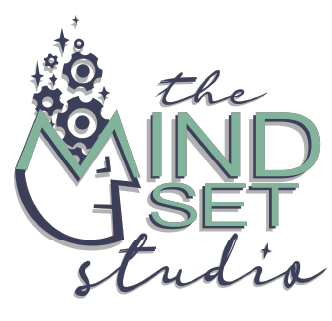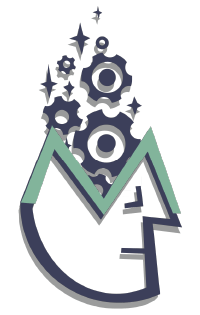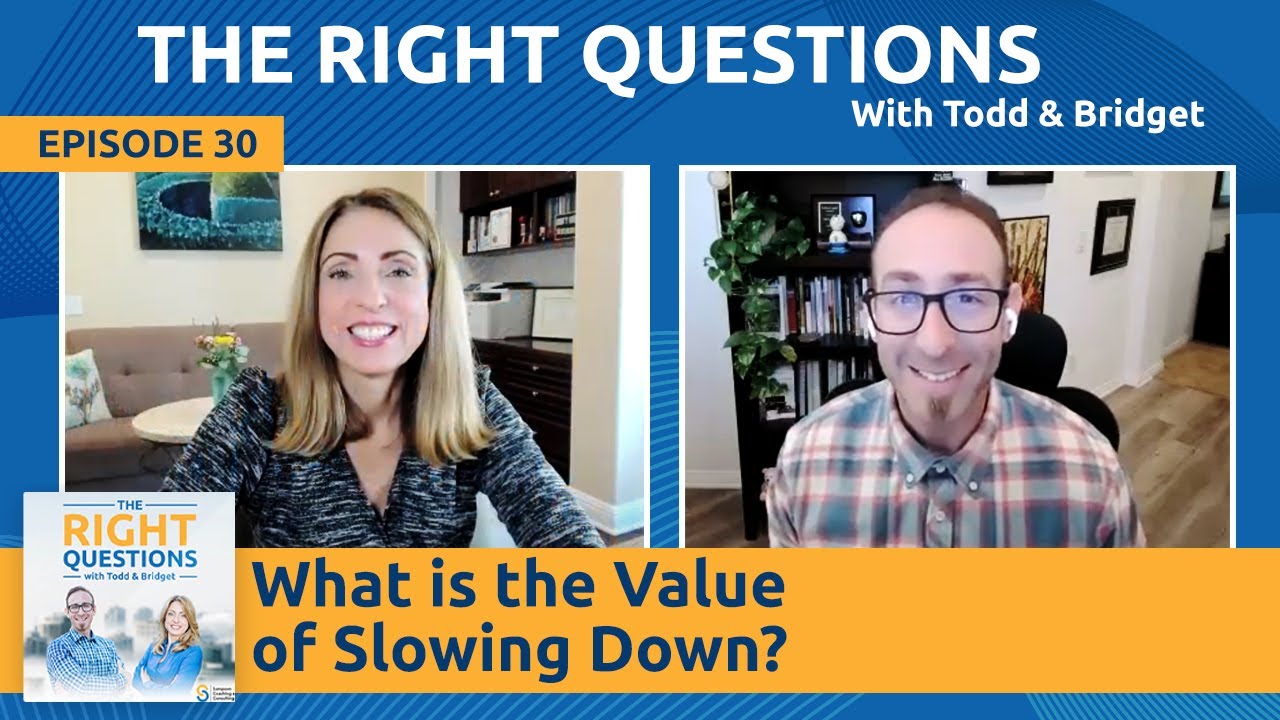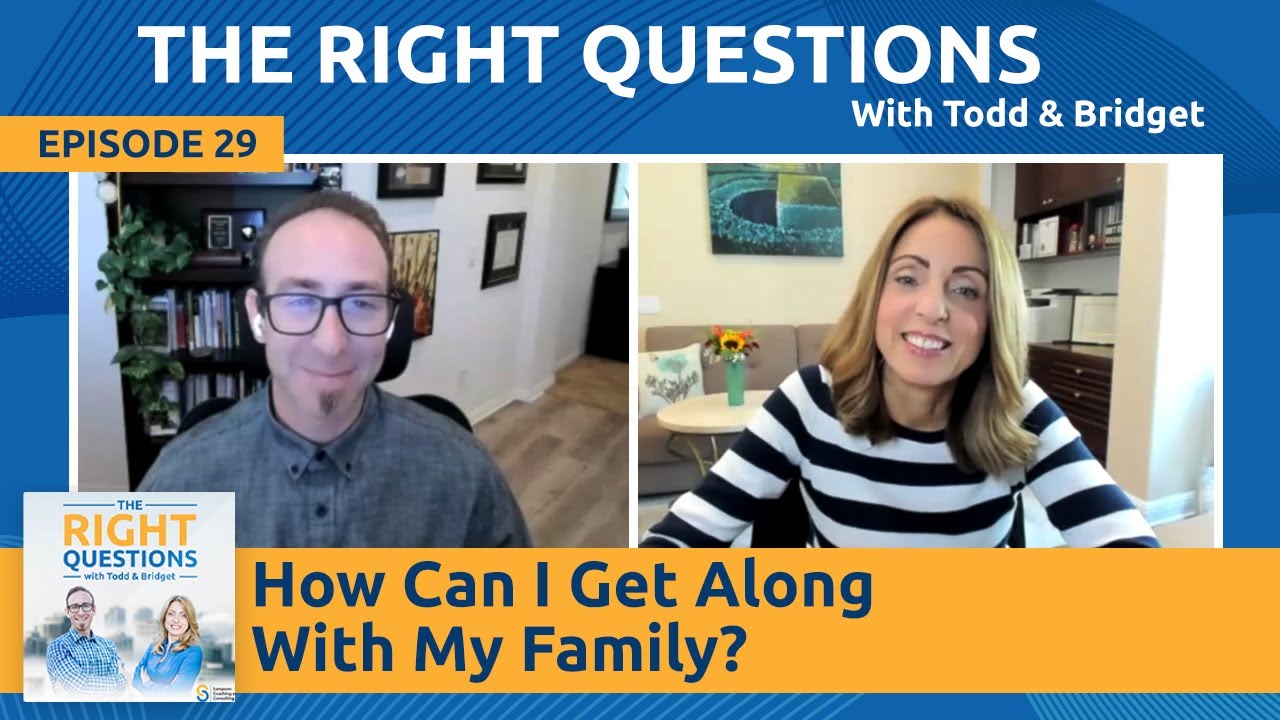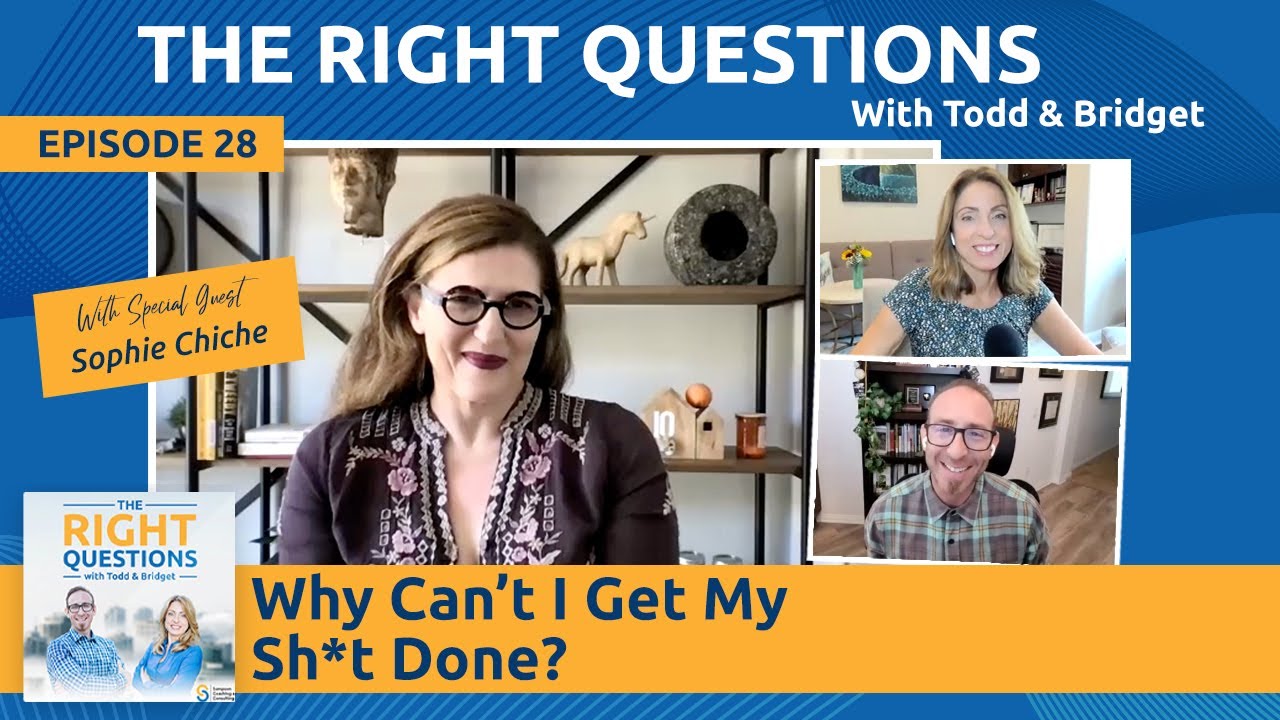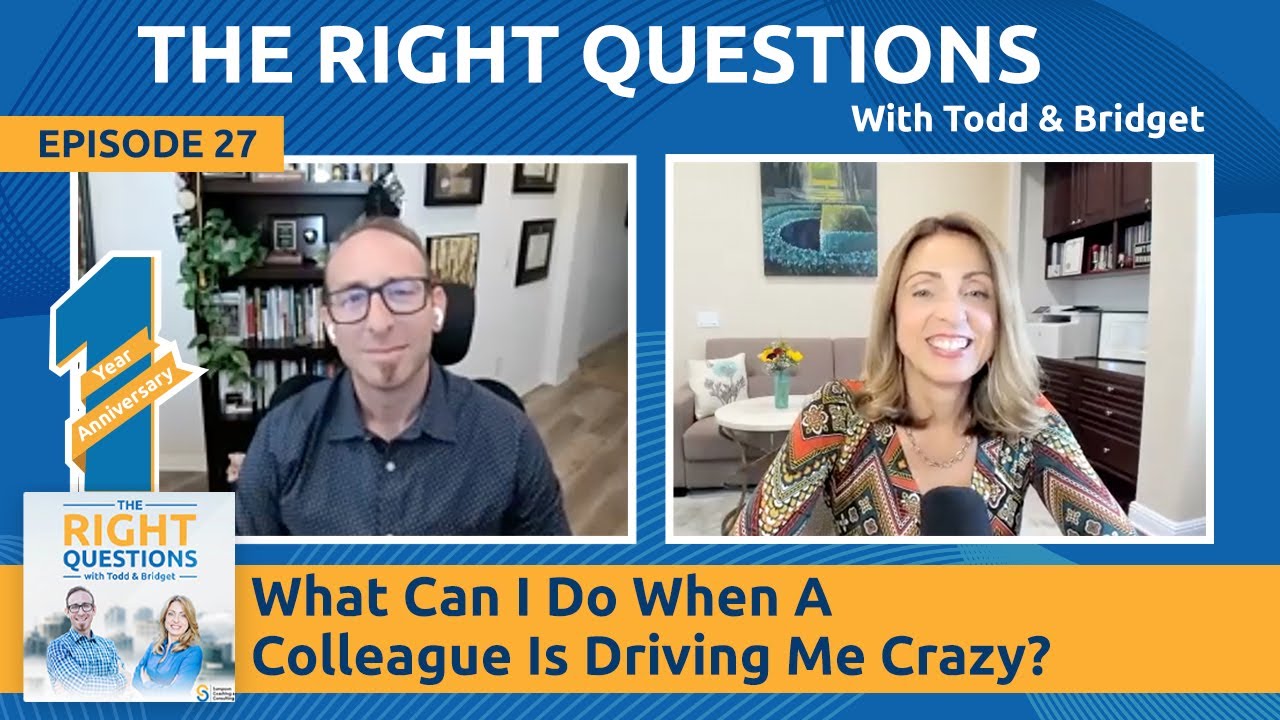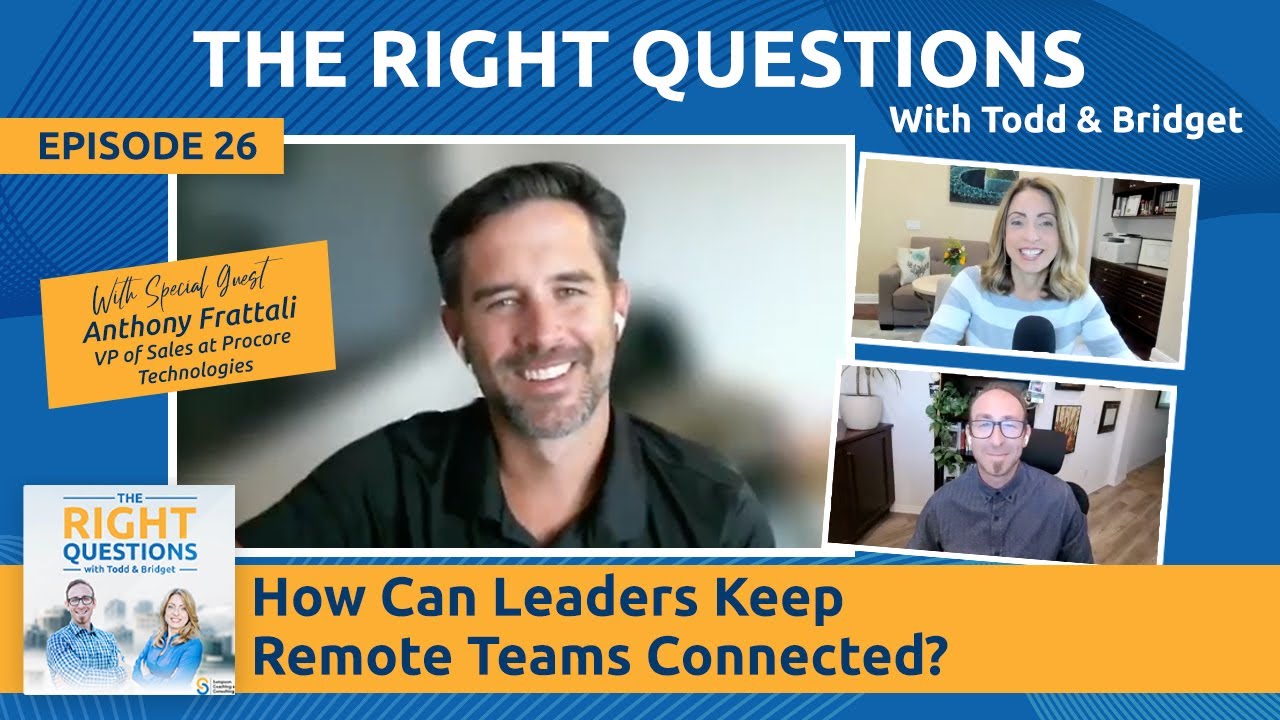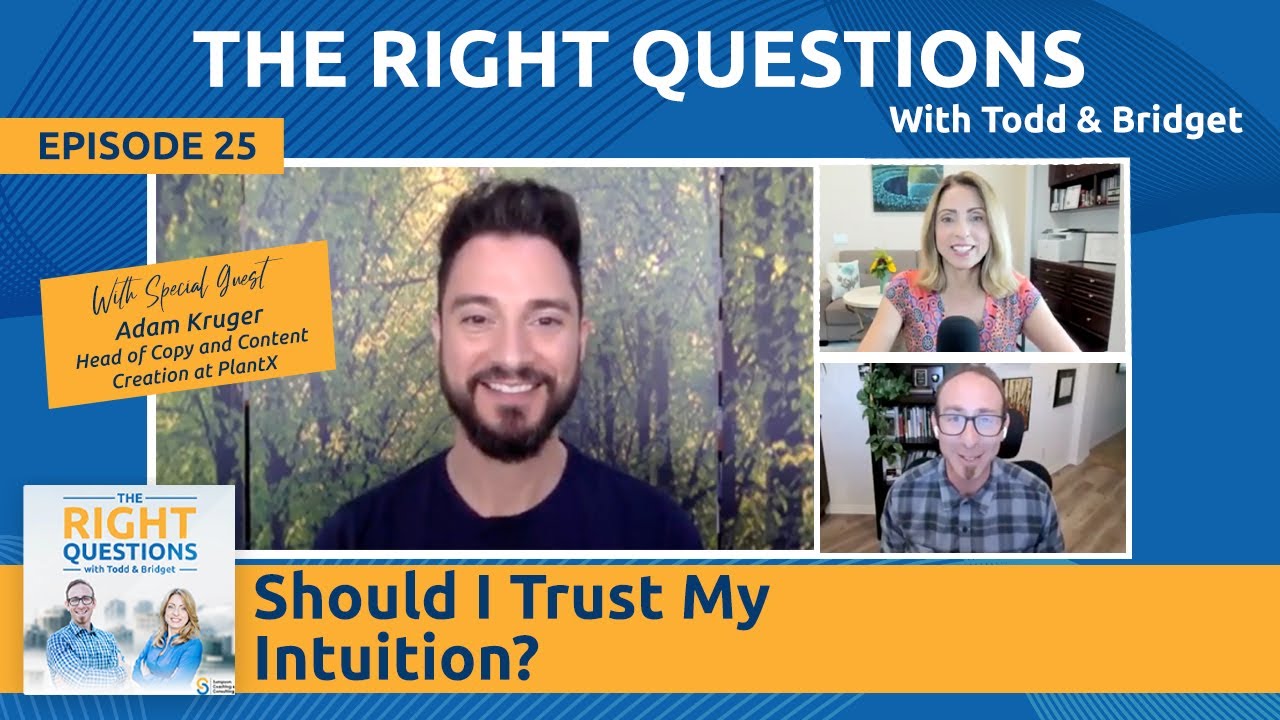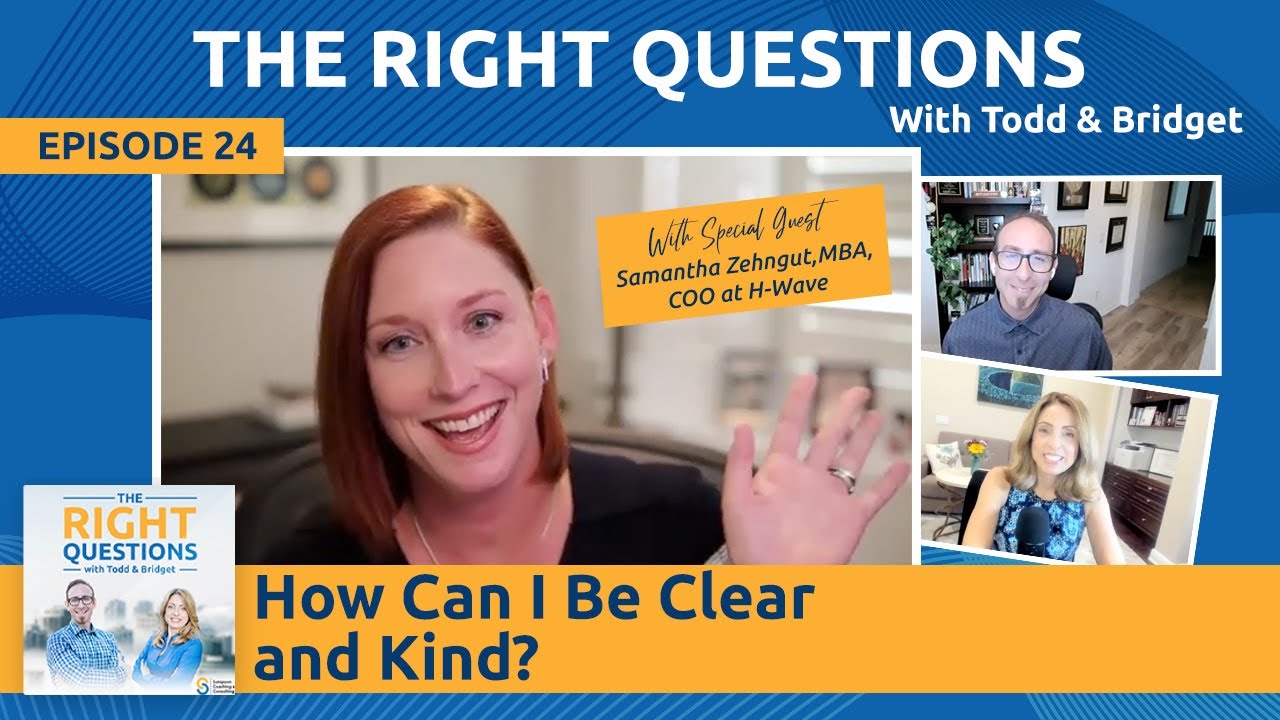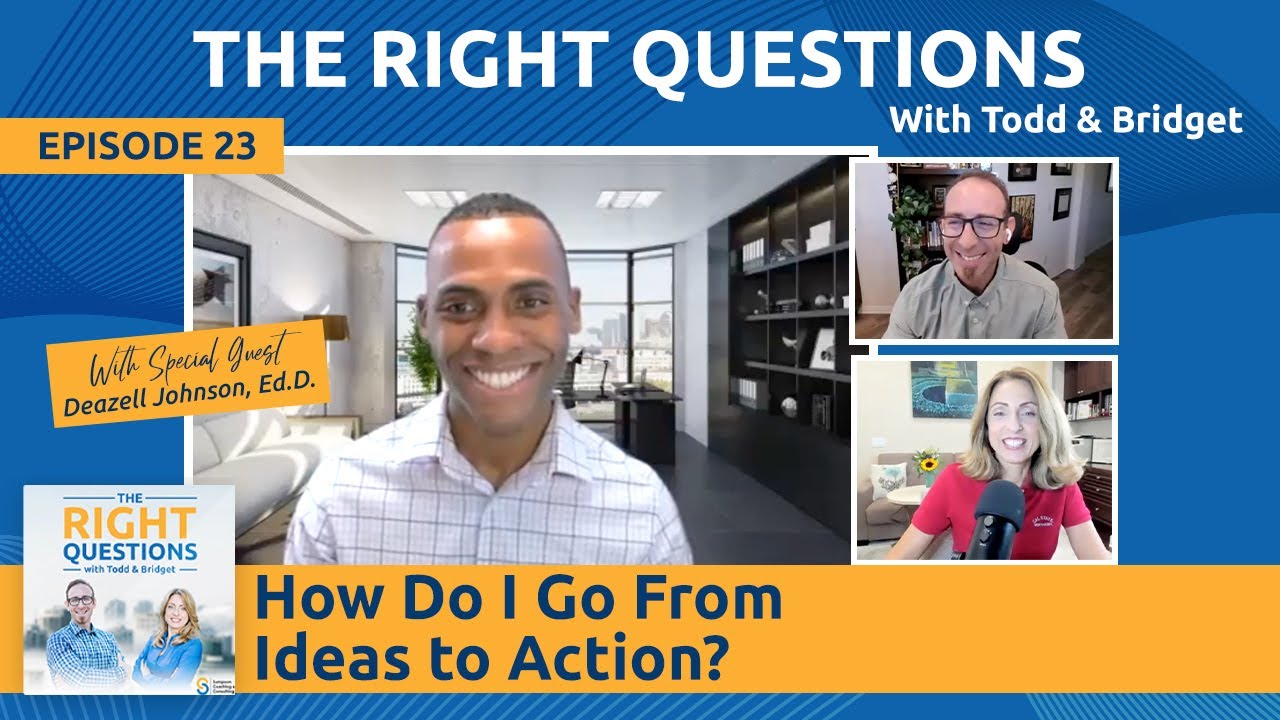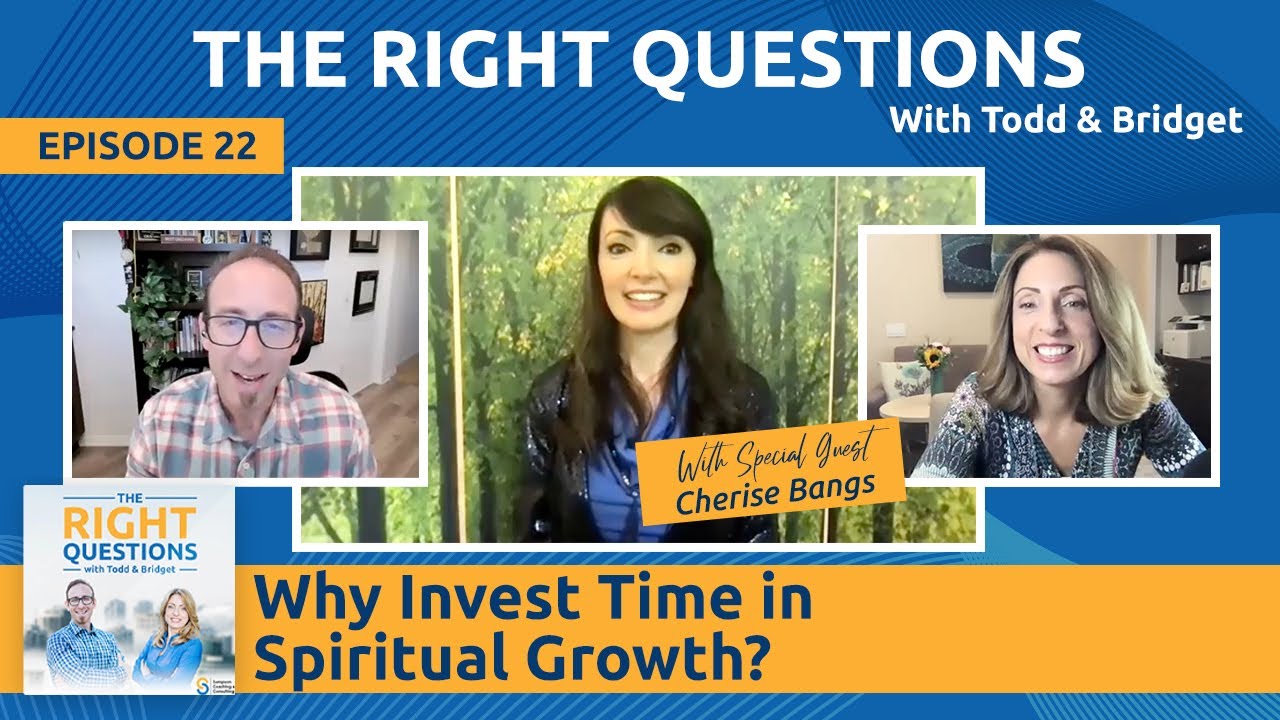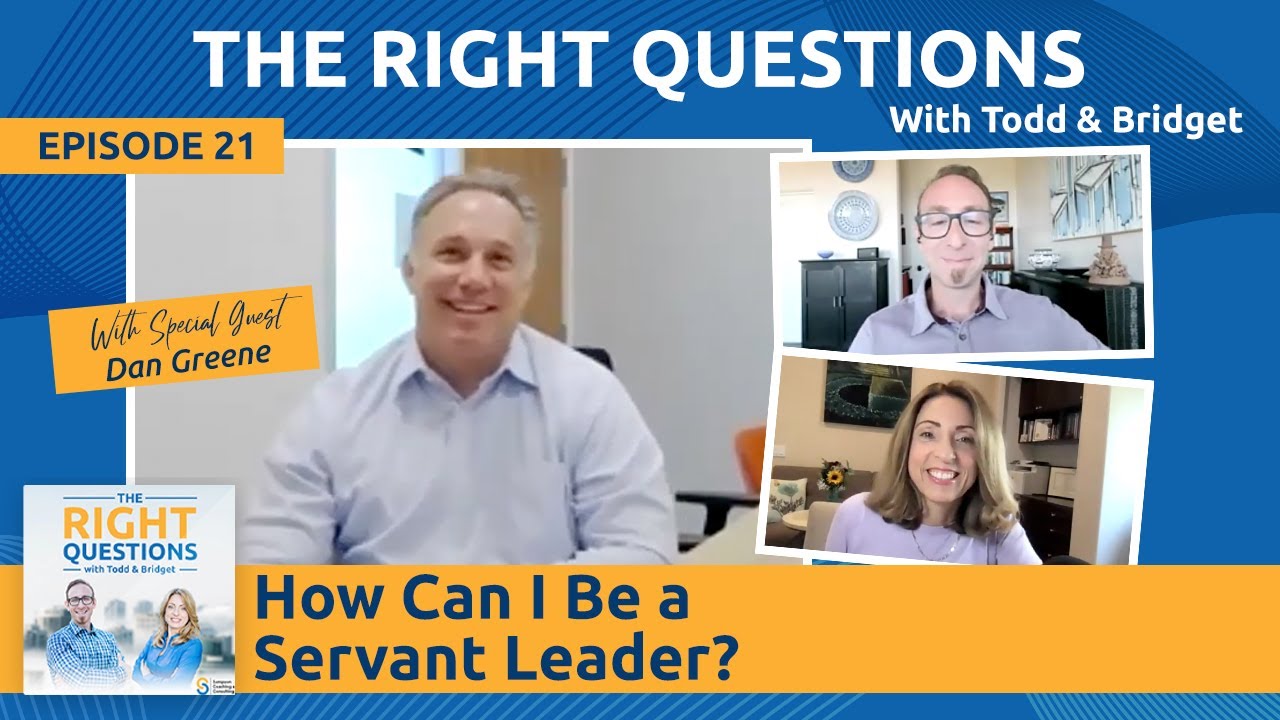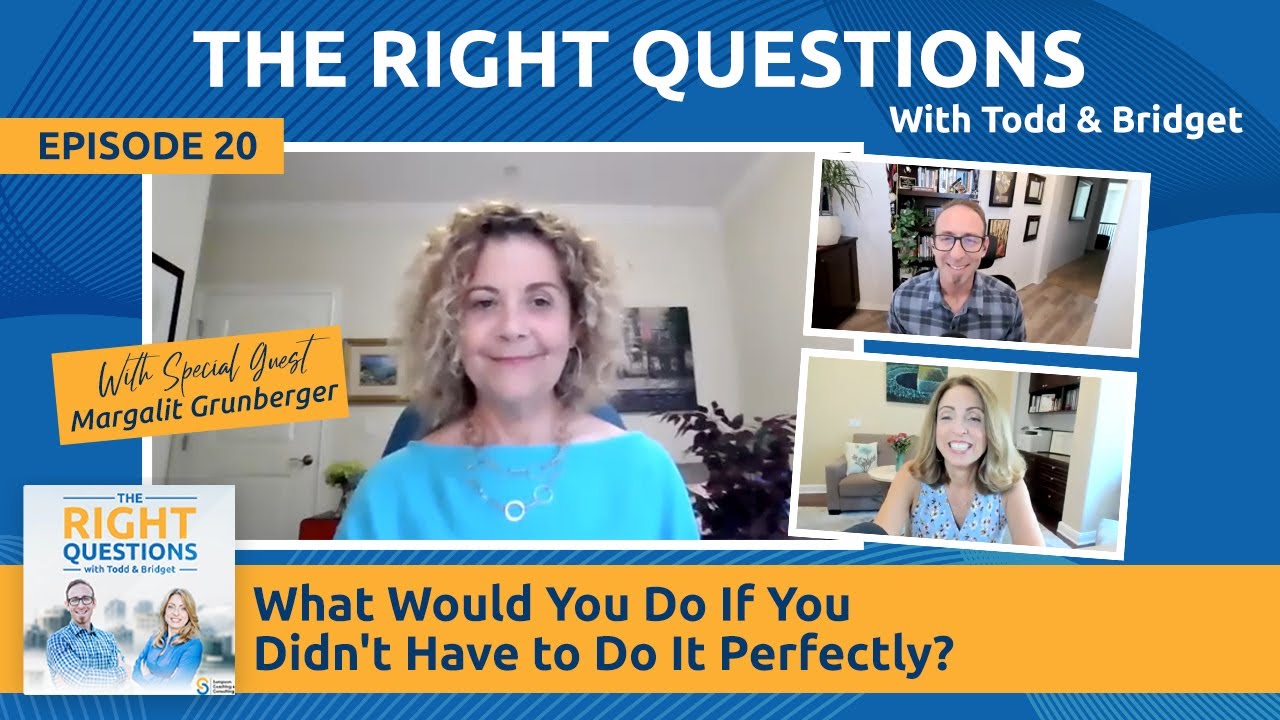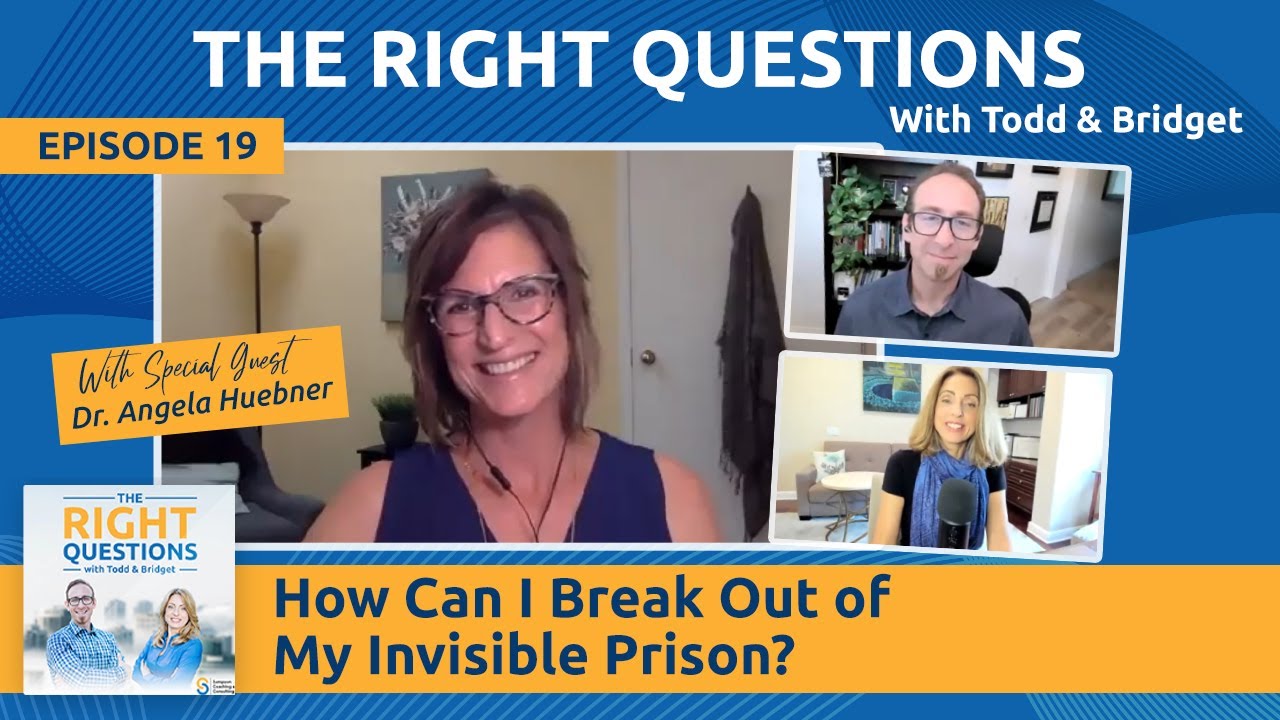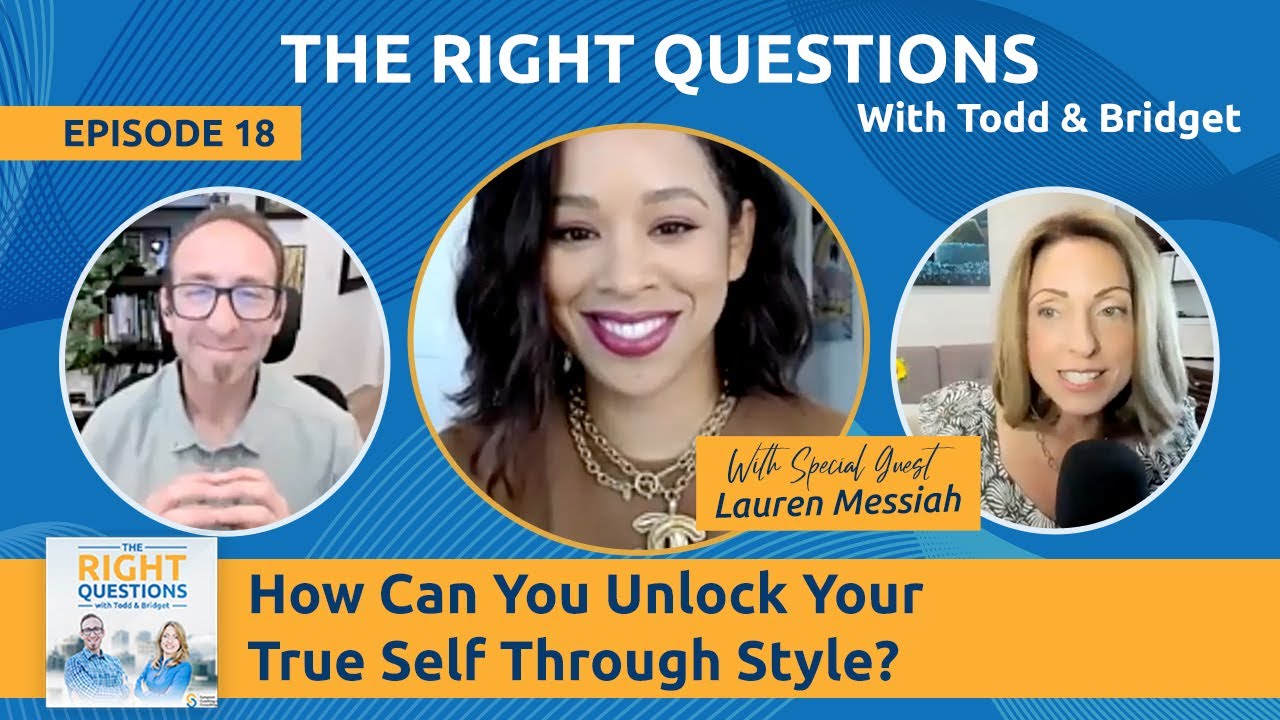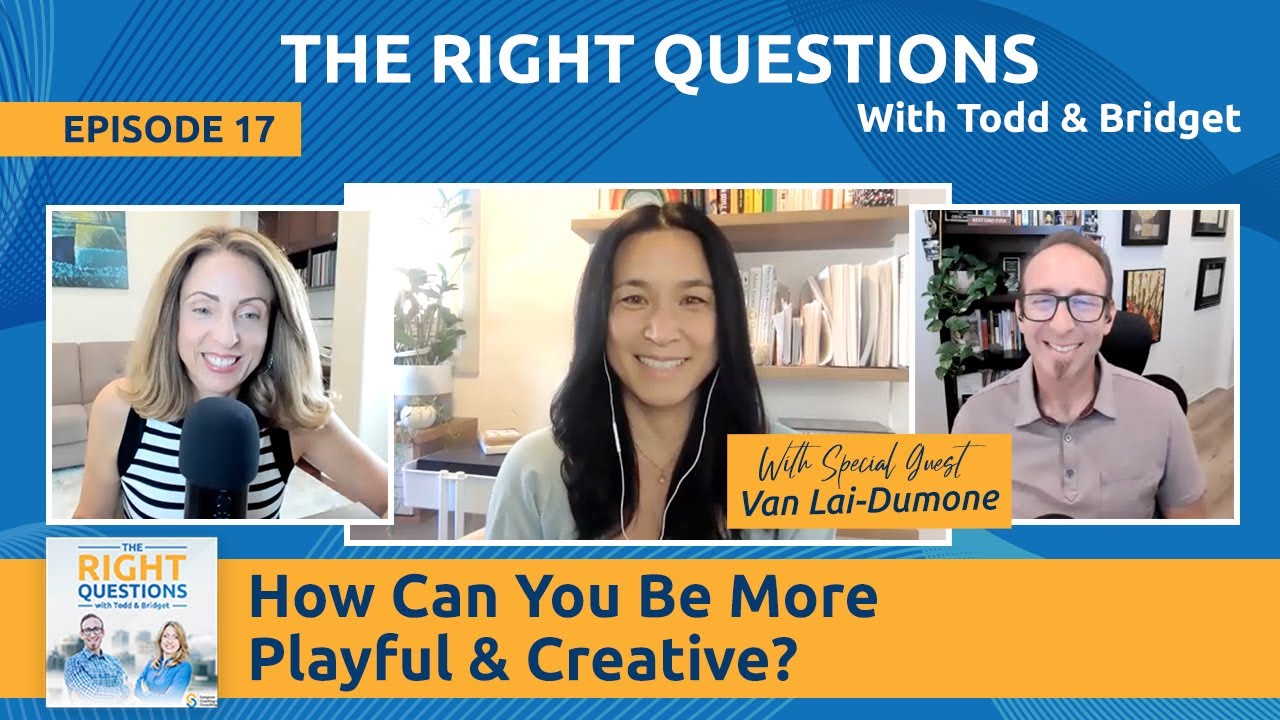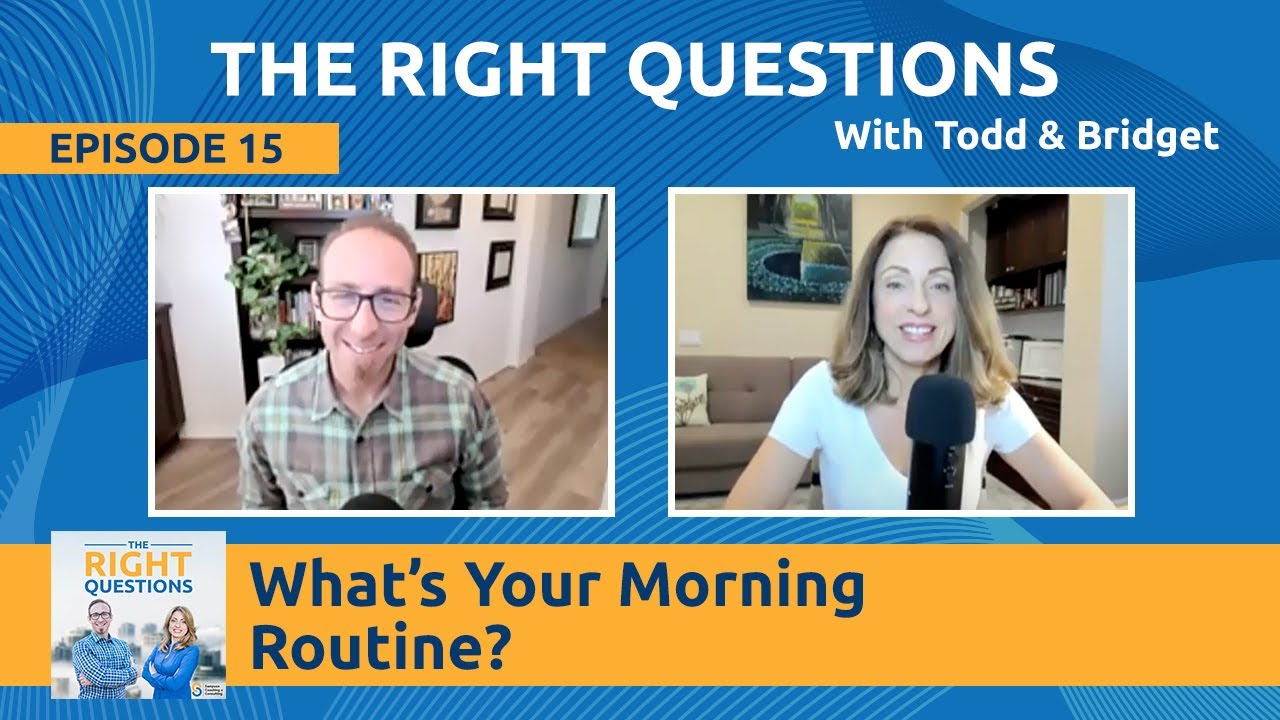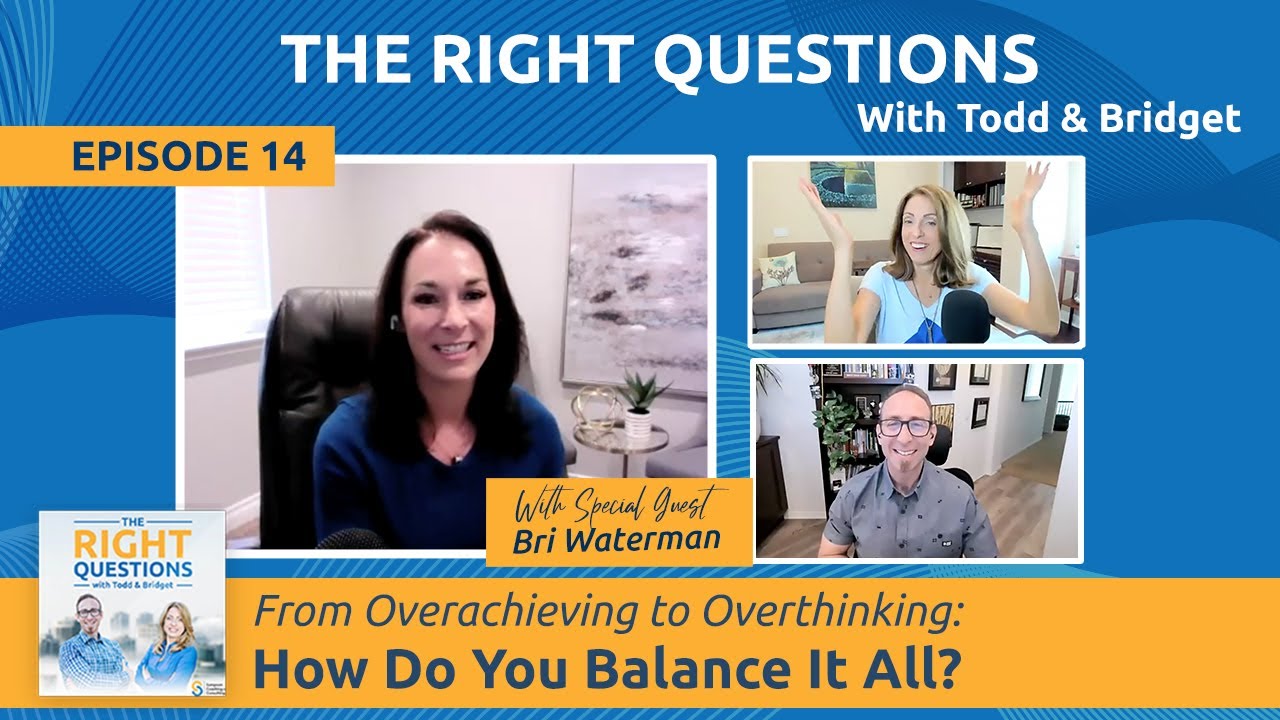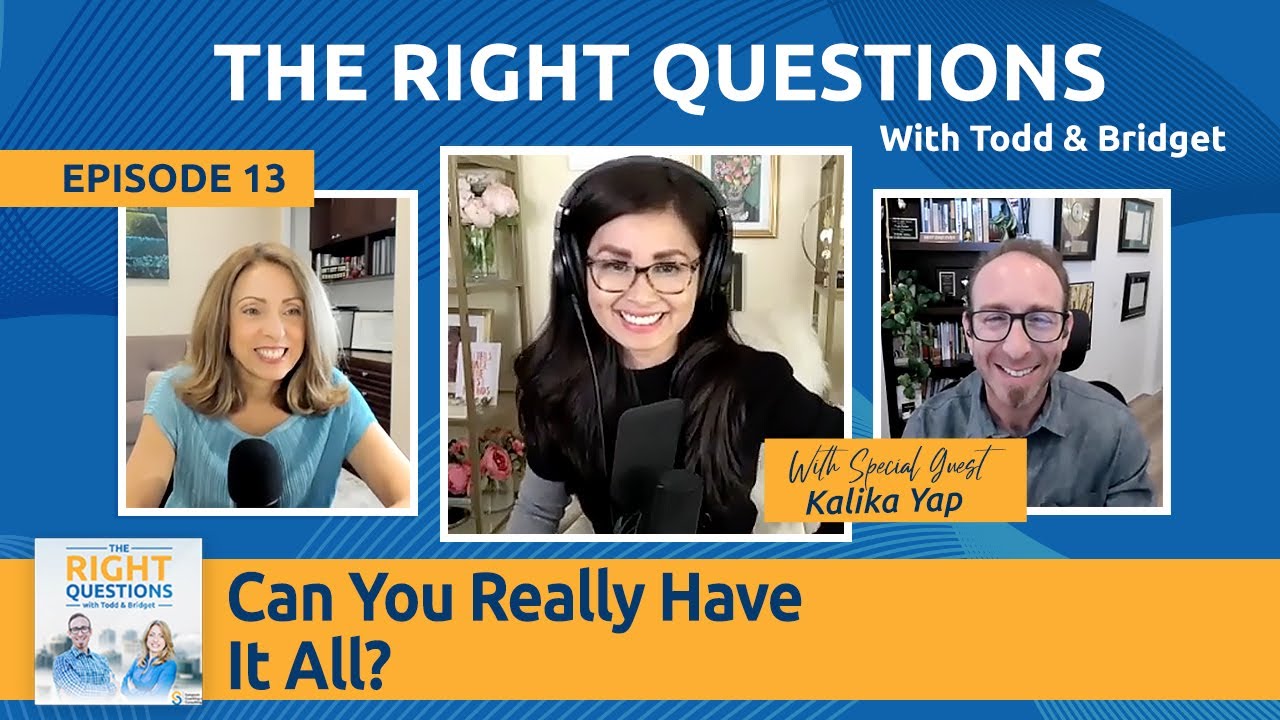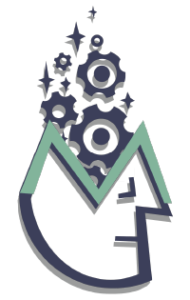Ep. 30 | What Is the Value of Slowing Down?
We live in a results-oriented, achievement culture where we value the doing over the being and standing out over blending in. The hustle and the grind are glorified, revered, and the end of the year is usually a time when we reflect on the fruits of our efforts. We look at what we’ve accomplished from our yearly goals list and calibrate or adjust the direction of where we’re headed. One thing is certain, the world around us demands that we keep moving forward.
The end of the year is also the time when we often feel exhausted and the need to rest, both physically and mentally. So, whether our bodies give us signs that we need to slow down a bit or not, we believe lowering the rhythm and pace of our lives has multiple benefits, and we explore some of them in today’s episode by answering the question: What Is the Value of Slowing Down?
We delve into the multiple benefits and advantages of slowing down. While it may sound counterintuitive, research shows that success has as much to do with slowing down and ‘being’ as it does with the ‘doing’ and hustling all the time. We address how slowing down helps us clarify our values and determine and set priorities. We also highlight the importance of carving out time for self-care, tuning into and figuring out our emotions, making better decisions, and much more.
In This Episode, You Will Learn:
- How slowing down can help us reach new levels of success (4:37)
- Slowing down is key to gaining more clarity in our values and our priorities (9:35)
- When we never take the time to slow down, we are missing all kinds of opportunities (11:30)
- The multiple benefits of carving out time for ourselves (16:24)
- How important it is to detach ourselves from results for a while (23:03)
- How slowing down can help us make better choices (25:26)
- What the difference is between slowing and paring down (41:19)
- We are not holding up the world, even if we feel as if we are (42:36)
Ep. 29 | How Can I Get Along With My Family?
The holidays are just around the corner, and for many of us, this could be the first time in almost two years or more that we’ll get to see some of our relatives and extended families. These reunions are, for the most part, joyful, but also, there can be some unpleasant tension due to communication challenges. So today, we decided to wear our professors’ hats and offer some valuable academic content that we’re sure you will be able to relate to and put into practice to enjoy more harmonious, loving family gatherings!
Today, we talk about family communication patterns, more specifically, conforming versus conversation orientation. The key takeaway of this episode is to pay careful attention to how we communicate with our family, without judgment, simply looking at how we decide to interact, what we say, and how we say it, in order to avoid unnecessary conflict.
We teach you the three levels of confirming messages, exploring them, and highlighting their relevance. We also go through the seven types of disconfirming responses, analyze their impact, and offer some practical examples to help you avoid these triggers for defensiveness and disharmony.
In This Episode, You Will Learn:
- How to use conforming messages to engage with our family, and why it should be our first choice (7:45)
- The importance of recognizing our kids’ individuality (11:02)
- Raising a speech & debate champion. How it was for Bridget to deal with her daughters who were natural debaters and what she learned from the experience (15:55)
- The three levels of conforming messages (19:28)
- Seven types of disconfirming messages we should always try to avoid (24:53)
- Controlling communication versus problem orientation. Understanding what kind of message is expected from us (36:01)
- Superiority versus equality. Nothing is better or worse than anything else (39:20)
Ep. 28 | Why Can’t I Get My Sh*t Done? w/ Sophie Chiche
As we return to the activities that filled our lives before the pandemic, many of us see our to-do lists growing. Especially for those of us who have kids; soccer, gymnastics, lacrosse, and all the extracurriculars are back. Throw in a return to in-person schooling, our jobs, and dare we add social lives, clearly, our plates are full. And, while we have plenty of tools to get more done and stay organized, still, lots of important things remain undone. Our guest today, the brilliant Sophie Chiche, has some interesting and incredibly helpful ideas about why we all struggle to get things done despite having all the structures and strategies in place.
Sophie Chiche is a Psychologist by trade and specializes in teaching fun and effective project management systems that are designed to help people with lots of ideas execute the most meaningful ones. She is the Founder and CEO of becurrent and lifebyme.com. Sophie is an Entrepreneur, Author, TEDx Speaker, Journalist, and her work has been featured on Ellen, Good Morning America, E!, The Today Show, and in The New York Times and The Los Angeles Times, to name a few. Sophie holds an MBA in Business & Marketing from EBS Paris – European Business School and an M.A. in Psychology from the University of Santa Monica.
In this episode, Sophie shares some fascinating ideas and concepts to answer today’s question, Why Can’t I Get My Sh*t Done? She invites us to look at time management as “peace management,” focusing on how we feel about what we have to do rather than on the items on our to-do list. We also talk about procrastination, developing the ability to say no to things and people, life’s tradeoffs, protecting and valuing our time, and much more.
Some Questions We Ask:
- Based on your experience and the coaching work you do, what do you see as an answer to today’s question? (7:42)
- What if I have a conflict of priorities, such as, I’m not doing this thing because while it’s important, there are these other things that keep getting in the way of me doing it? Have you ever heard that one before? (18:35)
- Each of us comes with ‘stuff’… processing delays, some have ADHD, still, others just have idiosyncratic stuff that we have in how we operate. What is the starting point for those who are dealing with something like that? (35:18)
In This Episode, You Will Learn:
- The importance of learning to say NO (9:44)
- If you have too many priorities, that is precisely your problem (19:56)
- How having clarity in the things we need to do can help us achieve more (27:26)
- How knowing our archetype can help us accomplish more and suffer less (29:54)
- About the importance of encouraging kids’ creativity (37:36)
- It is hard to say no when we don’t have our yes, and what is a full-body yes (48:09)
Resources:
becurrent website: https://becurrenttoday.com/
becurrent Facebook: https://www.facebook.com/becurrenttoday
becurrent Instagram: https://www.instagram.com/becurrentto… lifebyme.com
website: http://www.lifebyme.com/
Book: Greg McKeown – Essentialism: The Disciplined Pursuit of Less: https://tinyurl.com/hp7aaaxd
Connect with Sophie: LinkedIn: https://www.linkedin.com/in/sophiechi…
Instagram: https://www.instagram.com/sophiechich…
Ep. 27 | What Can I Do When A Colleague Drives Me Crazy?
We’re celebrating! One year ago, we decided to start this exciting journey in the podcasting world, and we couldn’t be happier with the experiences it’s offered us. We’ve learned a ton along the way about podcasting, collaborative creative work, and, most importantly, about ourselves and how we interact with others.
We are eternally grateful for the possibility of adding value to your lives with each podcast we create, and today’s episode won’t be any different. In this episode, we use our experience of creating and producing the bi-weekly The Right Questions Podcast and our 10+ years of working together to answer a question that each of us wrestles with, What Can I Do When A Colleague Is Driving Me Crazy? We explore some of the challenges we faced in the process of putting this project together, how we discussed, navigated, and ultimately solved these issues, and what we’ve learned about ourselves through it all. We also offer insight into the communication and negotiations surrounding creative endeavors, tips for successfully navigating those tense conversations, and the critical roles that listening, emotional intelligence, transparency, and clarity play in the situation.
In This Episode, You Will Learn:
- Coming up with a name for the show. One of our first significant obstacles (4:31)
- How important it is to have clear goals (7:31)
- How asking “the right questions” helped us unlock “the right title” (9:07)
- How important it was for us to remain faithful to our vision of how we want to communicate and treat other people, from colleagues to clients, and collaborators (16:03)
- The importance of being clear about who we are, and at the same time, being transparent about it (22:32)
- How turning the lens back on ourselves can help us achieve massive growth (27:01)
Ep. 26 | How Can Leaders Keep Remote Teams Connected? w/ Anthony Frattali
We are filled with hope as the world is slowly returning to normal. Nevertheless, spending time in virtual environments is still a massive part of our lives, and we all know it’s here to stay. We’ve become used to having online parties, attending classes, training, coaching sessions, executive meetings, team huddles & stand-ups, all from our couch or office, and sometimes with people from around the globe.
Still, we crave authentic human connection, which remains both scarce and necessary. As Aristotle said, humans are by nature social animals. So, what can we do to nurture this human trait in times that require us to remain apart? Our guest, Anthony Frattali, has developed a formula that seeks to respond to this need for both himself and his team. Anthony has agreed to share it with us today to help answer the show’s question: How Can Leaders Keep Remote Teams Connected?
In addition to being a great person and dear friend of 20+ years, Anthony Frattali is the VP of Sales at Procore Technologies. He is responsible for building, managing, and scaling the sales organization at Procore. Since the pandemic started, Anthony and Procore have been trying a myriad of approaches to increase human connection within their teams, reduce burnout, and ensure they care for their associates and families.
In this episode, Anthony’s humility and openness shine bright, lighting a path for leaders to follow. We talk about the two pillars of Procore leadership: taking care of their people and instilling creativity. We explore some of the ideas Anthony and Procore have implemented to increase connectivity, reduce stress, and build a culture of trust and balance in the organization. We talk about the ones that worked very well and those that didn’t! We also talk about the importance of being surrounded by the right people, the keys to being a servant leader, and how to make time for and prioritize ourselves.
Some Questions We Ask:
- Could you talk a bit about yourself and the journey you went through to get to this point? (5:48)
- In this new world where we’re craving connection, what is it that you’ve been doing to meet this calling? (8:32)
- What about getting the work done? This is a big question we get from a lot of leaders. How have you managed that? (15:47)
- How do you have that conversation or even get the courage to have that conversation and be transparent upfront about autonomy and trust in a virtual workplace? (22:03)
In This Episode, You Will Learn:
- What has Anthony been doing as a leader to keep his team connected during the pandemic (8:36)
- What projects worked really well and which ones didn’t at Procore to raise connectedness amongst associates (10:34)
- Anthony talks about the central role of trust in virtual working environments (15:51)
- The little things that have a massive impact on our employees’ lives and their relationship with the company and their jobs (23:52)
- The details we must take care of, as servant leaders, to ensure our people feel supported (29:32)
Resources:
Procore Technologies website: https://www.procore.com
Connect with Anthony: LinkedIn: https://www.linkedin.com/in/anthonyfr…
Ep. 25 | Should I Trust My Intuition? w/ Adam Kruger
What is intuition? Is it our ability to know something without proof? Is it our sixth sense? Is it inferior to reason? Can instincts be trained, developed, or refined?
Why do some people appear to have intuition that’s on point, leading them consistently through the right path? How can we tell the difference between our intuition’s voice and wishful thinking or projection? To Adam Kruger, our guest on the show – and the perfect person to answer today’s question – our intuition is always correct and perfectly tuned. He believes that we only need to quiet our minds to make our intuitive nudges sound louder.
Adam is the Head of Copy and Content Creation at PlantX. He is a TV Host, Producer, Inspirational Speaker, Podcast Host, and Executive Coach. He is also a meditation teacher, an avid learner, and passionate about helping people reach their full potential through mindfulness and meditation based on over 22 years of his own spiritual practice rooted in Yoga & Ayurveda.
In this episode, Adam offers his unique perspective on the power of intuition and its true nature. We explore the differences between random fearful thoughts and our intuition’s voice and how we can refine our abilities to listen to our instincts. Throughout our conversation, Adam shared some of the pivotal moments in his life where he made decisions following an intuitive nudge. We also talk about acceptance, the benefits of being intentional and present, and much more.
Some Questions We Ask:
- Although I have a suspicion about what your answer is, should I trust my intuition? (6:19)
- How, then, do I learn to trust my intuition? (6:40)
- How do you allow yourself to trust that voice? Where does that trust come from? (20:24)
- What can we do to learn how to follow the inner voice of our intuition? (36:55)
In This Episode, You Will Learn:
- How calming our mind can help us to listen to our intuition (7:50)
- One of the many pivotal moments in Adam’s life when following his gut was the best choice (10:29)
- Why chasing wealth for the sake of it will lead us nowhere (21:20)
- Why we must focus on changing little habits rather than trying significant changes at once (40:18)
- Adam shares brilliant insights about parenting, our kids’ dependency, and freedom (52:35)
Resources:
Adam Kruger website: https://www.theadamkruger.com/
Enhanced Living Podcast: https://www.theadamkruger.com/podcast-1
Connect with Adam: LinkedIn: https://www.linkedin.com/in/theadamkr…
Ep. 24 | How Can I Be Clear and Kind? w/ Samantha Zehngut, COO at H-Wave
Leadership is remarkably nuanced, making it exciting, rewarding, and highly challenging all at the same time. Perhaps, one of the trickiest parts of being a leader in both our personal and professional lives, is finding a balance between getting the job done while keeping the staff happy, motivated, and proactive. Among the infinite number of leadership styles, we must find the one that best fits our capabilities, the one that is aligned to our core values. To Sam Zehngut, healthy leadership means being transparent, authentic, and kind. She is convinced that the message from leaders that are not transparent and authentic about who they are gets garbled; it loses meaning.
Joining us today is Samantha Zehngut, COO at H-Wave – Electronic Waveform Lab, Inc, an exceptional leader, mother, and dear friend. Sam contributes to increasing the company’s revenue by helping people learn to take risks. She also develops teams that trust and care for each other to execute innovative ideas and strategies. Sam holds a double degree in Education & History from California State University, Long Beach, and an MBA in Organizational Leadership & Change Management from Pepperdine University, The George L. Graziadio School of Business and Management.
Sam is also the perfect person to answer today’s question: How can I be clear and kind? Together, we explore the different aspects of being a servant leader. Sam explains her leadership style; she tells us where it came from and what circumstances in her life helped her build it. We also talk about the importance of making employees feel heard and cared for, the proper way of approaching hard conversations, why leaders must always leave their egos aside, and much more.
Some Questions We Ask:
- What is your process in preparing to have the so-called challenging conversations? (18:13)
- Could you speak a bit about what your processes for self-care are? (24:51)
- How do you balance showing up in all these ways where your staff feel cared for, safe, and included while also taking care of yourself? (39:05)
In This Episode, You Will Learn:
- The consequences of not being transparent and authentic as a leader (10:12)
- About Sam’s love for having challenging conversations (15:34)
- The benefits of approaching challenging conversations with a curious mindset (20:25)
- Some brilliant insights about blended families (41:55)
- The importance of building and maintaining clear boundaries for others and ourselves (49:13)
Resources:
Book: Brené Brown – Dare to Lead: Brave Work. Tough Conversations. Whole Hearts https://www.amazon.com/Dare-Lead-Brav…
Book: Marilee Adams – Change Your Questions, Change Your Life: 12 Powerful Tools for Leadership, Coaching, and Life https://www.amazon.com/Change-Your-Qu…
Connect with Sam: LinkedIn: https://www.linkedin.com/in/samantha-…
Ep. 23 | How do I go from ideas to action? w/ Deazell Johnson, Ed.D.
It was the winter of 2019, life was going great, and 2020 was looking bright! After finishing his doctoral program, Deazell Johnson felt at the top of his game, ready to move into his first teaching experience and satisfied with the opportunities he had manifested. Then, life happened! The pandemic hit, and soon after, in a span of only two weeks, he lost two family members to non-COVID-related deaths. Deazell felt himself slipping back into a dark place he thought he had overcome; where financial, racial, & homophobic hardships left him anxious and depressed. At this point, feeling stuck inside all of this loss, Deazell’s accomplishments didn’t mean anything to him. Life was tough, it was difficult to manage his mind, he was going in circles, and making little progress. With 2021 right around the corner, Deazell decided it was time to make changes in his life. The following day, he discovered The Right Questions Podcast for the first time… That was the turning point!
We are thrilled to bring servant leader Deazell Johnson Ed.D to the show; he is an Adjunct Faculty Member at California State University, Northridge (CSUN), and California Lutheran University. Deazell is also an Academic Advisor & Mentor at California State University, Northridge. He holds a BA in Screenwriting, an MA in Educational Administration in Higher Education, and an EdD in Educational Leadership and Policy Studies from California State University, Northridge.
In this episode, Deazell helps us answer today’s question, How Do I Go From Ideas to Action? We talk about intersectionality, the power of habits, consistency, self-value, and the importance of being open-minded and receptive to people’s thoughts and guidance. Deazell also talks about his identity, his experiences with intersectionality as a queer black male, and the pressure of finding a role model. The way Deazell has absorbed, repurposed, and consistently applied our content and suggestions to improve his mind and life has been deeply moving for us to hear about. His story is uniquely inspiring and demonstrates, in concrete ways, how to take our ideas and put them into action. Deazell provides so much raw honesty and value, this episode is definitely a must-listen!
Some Questions We Ask:
- You mentioned that the podcast came around at a time when you were looking for something. Could you talk about that? (10:21)
- Have you developed a question yourself? What questions are you using to guide you, and how are those working to transform you? (19:09)
- You mentioned breaking out of your mental prison, and that ties right to building change resilience. What actions can you share with us that you’re doing and have done? (38:54)
In This Episode, You Will Learn:
- Deazell’s ups and downs. From manifesting a dreamed reality to having to start all over again (11:29)
- How asking the right questions gave Deazell a new perspective and helped him rise (15:05)
- The power of committing to ourselves (25:13)
- Forming a habit. From comfort to courage zone (32:31)
- How Deazell went from idea to action (43:15)
Connect with Deazell:
LinkedIn: https://www.linkedin.com/in/deazelljo…
Ep. 22 | Why Invest Time in Spiritual Growth? w/ Cherise Bangs
Soon after Cherise started interacting with other kids, she realized that her childhood and upbringing were anything but typical. She was born at home, the daughter of Jewish and Christian parents who celebrated both religions but continued seeking answers, constantly exploring new spiritual spaces, trying to find the path to truth. Dinner conversations commonly centered around books such as The Alchemist or The Celestine Prophecy. Cherise realized that most people weren’t on the same path as her, and this boosted her curiosity and need to find life’s truths. Cherise started to understand that as she went deeper into her spirituality and honed her spiritual practice, everything in her life became better!
In today’s episode, we welcome the intelligent and divinely tuned-in Cherise Bangs — Actress, Ayurvedic Yoga Therapist, Tarot Card Reader, Reiki Master, and Co-curator of Madison Charles Oils. She helps us answer the question, Why Invest Time in Spiritual Growth? Cherise has starred in an array of hit TV shows and films like To Tell The Truth, iCarly, 3 Days Gone, and The Ones, to name a few. She loves coaching people to be the best version of themselves through Ayurvedic consultations, private yoga and meditation sessions, sound healing, Reiki, and Tarot card readings.
Throughout this episode, we talk with Cherise about the spiritual connection people are constantly craving, the power of mantras, and the need for compassionate self-reflection. Cherise shares valuable insights on the importance of having a positive outlook and being free in our minds. We also talk about love, marriage, and the ways life partners can inspire each other to become the best possible versions of themselves.
Some Questions We Ask:
- What is spiritual growth? (8:14)
- What are some of the practices that help us get to a place of love, joy, and connection? (11:37)
- Saying a mantra, what does that really do for me? Why would I say that to myself, over and over again? What’s the purpose? (16:02)
- What are we missing when we’re so stuck in the “doing”? (20:53)
- You have this whole Hollywood career, yet you break every stereotype; you are the most generous, kind, giving, authentic person. How did those jive together? (33:34)
In This Episode, You Will Learn:
- How Cherise found spirituality and, in so, her place in the world (9:34)
- About the power of mantras and their millenary tradition (16:07)
- Spiritual practice can take us anywhere (21:26)
- The power of being free in our minds (23:46)
- Cherise’s brilliant answer to our previous guest’s question (37:14)
Resources:
Cherise Bangs website: http://www.cherise.com/
Cherise Bangs Link Tree: https://linktr.ee/CheriseBangs
IMDB: https://www.imdb.com/name/nm0051966/?…
Book: Paulo Coelho – The Alchemist: https://www.amazon.com/Alchemist-ALCH…
Book: James Redfield – The Celestine Prophecy: https://www.amazon.com/Celestine-Prop…
Ep. 21 | How Can I Be a Servant Leader? w/ Dan Greene
Servant leadership is much more complex than traditional leadership, where leaders build walls around themselves, use their authority to tell people what to do, and don’t care much about the people they’re leading on a personal level. Servant leadership requires compassion, discipline, consistent levels of energy, emotional and mental stability, and the ability to deliver an A game daily. Being a servant leader is not the easiest choice but certainly the most rewarding, and today’s guest, Dan Greene, is here to talk with us about this important subject.
Dan Greene is the Senior Vice President of North American Sales & Growth at Impossible Foods. He is an accomplished sales manager and leader with vast experience in leading groups in dynamic and challenging situations. Some of his past experiences are Vice President of Sales at Twitter, Director of New Products and Solutions at Google, and Board Member at HSMAI, just to name a few. Prior to serving as a leader in multiple organizations, Dan was a Fighter Pilot and Director of Operations in the Navy.
Dan is certainly the right person to answer today’s question, How can I be a servant leader? He shares brilliant nuggets of what it means to be a servant leader and helps us understand the differences between traditional and servant leadership. We talk about his extensive experience in leadership, how his military background influenced his leadership qualities and the principles that drive his daily actions and life.
Some Questions We Ask:
- Servant leadership is something we’ve studied, we teach, and we’re all very passionate about. Could you expand on this idea? What is servant leadership to you? (8:38)
- Could you speak about the contrast between traditional and servant leadership, since you’ve experienced both of those styles? (10:44)
- Why do you choose to be a servant leader when being a traditional one is way easier? (17:17)
- How do all these leadership principles show up at home with your kids? (36:57)
In This Episode, You Will Learn:
- Dan’s leadership philosophy (9:03)
- The challenges of being a servant leader (11:22)
- How Dan expresses his core values through his leadership (18:29)
- The most challenging thing to do as a servant leader (20:49)
- No one asking questions and accepting everything the leader says is a bad sign (28:35)
Resources mentioned:
Book: Kim Scott – Radical Candor: How to Get What You Want by Saying What You Mean https://www.amazon.com/Radical-Candor…
Medium Article: Dan Greene – 30 years, 30 lessons in Leadership https://medium.com/@dangreene_37926/3…
Ep.20 | What Would You Do If You Didn’t Have to Do It Perfectly? w/ Margalit Grunberger
No show notes available.
Ep.19 | How Can I Break Out of My Invisible Prison? w/ Dr. Angela Huebner
Our self-concept is always relational, so how we see ourselves as little ones depends on those around us. Our brain adapts to what it understands as the best way for us to survive. Behaviors that we receive positive feedback for are maintained while those that generate criticism are suppressed. We grow up without a point of comparison, often making it difficult to identify any flaws in the ways we were molded. As a result, and without noticing it, many of us confine ourselves inside invisible walls that keep us stuck. And, until we recognize what’s not working for us and begin to consider the alternatives, we remain inmates living in our own invisible prisons.
In this episode, we have an eye-opening and soul-touching chat with Dr. Angela Huebner; psychotherapist, executive coach, writer, and speaker. Angela holds a BA in Psychology from the University of Nebraska, as well as an MA and Ph.D in Family Studies & Human Development from the University of Arizona.
We met and bonded with Angela when the three of us were students together in our wonderful International Coaching Federation Certification Training Program, FastTrack Coach Academy.
Angela has over 30 years of experience working in the mental health field as a professor, researcher, and in private practice. For 17 years, she was a tenured associate professor in the Department of Human Development’s Marriage and Family Therapy Program at Virginia Tech University. Her work included teaching clinical and research courses, supervising graduate students in their clinical work, and publishing research related to military families and adjustment. Angela also has multiple mental health certifications; Internal Family Systems Therapist, Emotionally Focused Couple Therapy, Tapping, Hypnosis, and Gottman Marriage Therapy, just to name a few.
We had a deeply meaningful conversation about the invisible walls in our minds, including how to acknowledge and deal with them. Angela shared some brilliant insights on how our childhood experiences impact our lives without us noticing them. We spoke about our beliefs, the three planes of connection, intuition, the neuro components of our emotions, and much more. Angela also described the difference between traditional therapy and coaching and asked an excellent question for our next guest.
Some Questions We Ask:
- Where does one even start in trying to recognize that they’re in this invisible prison in the first place? (10:48)
- What’s the challenge for us in giving up our old beliefs? Why are we hanging on to them? (20:03)
- Can you speak about how your work allows us to step into other pieces of self or get in tune with other fragments of self like our intuition? (23:56)
- What do you recommend as a starting point for breaking down these invisible walls? (44:15)
In This Episode, You Will Learn:
- How to recognize your invisible walls (10:54)
- Why it’s hard to change beliefs that have seemingly served us well (19:42)
- The three planes of connection; self, source, and others (24:10)
- It is not about creating our vision; it is about remembering it (34:36)
- The gifts that come with getting our house in order and doing the work to sort out who we are (43:09)
Resources:
Angela J. Huebner website: https://www.angelahuebner.com/
FastTrack Coach Academy: https://fasttrackcoachacademy.com/
Connect with Angela: LinkedIn: https://www.linkedin.com/in/angela-hu…
Email: angela@angelahuebner.com
Ep. 18 | How Can I Unlock My True Self Through Style? With Lauren Messiah
There is a certain stigma around modeling, style, and the whole fashion industry: it’s a cold, superficial environment focused solely on perishable, shallow human characteristics… THE LOOK! And, although there are unwritten rules about how people present themselves and how they are perceived, style and clothing are so much more than mere looks; they can also help someone grow, rediscover themselves, and thrive.
Today, we are joined by Lauren Messiah; she is a style expert,entrepreneur, digital influencer, and educator. Lauren combines personal styling and life coaching to change people’s lives by changing how they see themselves. Her clients’ internal transformations are revealed and reflected in their new clothing; their new fit! It’s no wonder Google named Lauren #WomenToWatch on YouTube, and why she’s been featured in Marie Claire, Vogue, Elle, VH1, The New York Times, The Hollywood Reporter, and The Wall Street Journal, among many others.
Lauren is the author of “Style Therapy: 30 Days To Your Signature Style.” She is a dynamic entrepreneur and creator, with over 10 million views on YouTube. She has also designed and led workshops and training for Bloomingdales, Westfield Mall, Nickelodeon, THE OUTNET, and Luxury Garage, to name a few.
Lauren is absolutely the expert to answer today’s question, How Can I Unlock My True Self Through Style? She shares some impeccable and witty insights on self-image, confidence, fashion, and style. We talked about her journey to becoming a successful entrepreneur; she shared her experiences coming to LA from suburban Virginia and feeling like a freak when she was trying to get into a nightclub. We spoke about how our clothes can impact how we and others perceive ourselves and how to deal with both internal and external judgment. Finally, Lauren offers practical and productive tips for how you can step out of your comfort-zone and into your courageously styled true self.
Some Questions We Ask:
- Can you tell us about you and how you’ve climbed to where you are? (8:03)
- What do you find is the biggest challenge for people in trying to step into their true style? (13:12)
- What was the story that you shed and the new story you’ve stepped into? (15:20)
- We all have body image issues and body confidence challenges; what can you say to us to help with that?(29:00)
In This Episode, You Will Learn:
- How having a degree is not synonymous with getting an excellent job that pays well (9:37)
- How its possible to see the detours in our careers as positives (11:37)
- The difference between working to style celebrities and ordinary people (13:59)
- To stop being afraid of success; Lauren talks about her journey of shedding negative beliefs about self to find success (17:29)
- The importance of confidence when we define our style (26:06)
- The impact of culture shock and “feeling like a freaking loser” as Lauren describes her first experiences in LA (41:46)
Lauren Messiah website: https://style.laurenmessiah.com/
Book: Lauren Messiah – Style Therapy: 30 Days to Your Signature Style https://www.amazon.com/dp/1419745468
Ep. 17 | How Can You Be More Playful & Creative w/Van Lai-DuMone
In this episode, the fantastic Van Lai-DuMone helps us tackle today’s question, How Can You Incorporate Play & Creativity Into Your Work & Life? We had an enlightening conversation about creativity and the positive effects of introducing games and creative activities to the workspace.
Van kindly shared her family’s story; coming to America when she was 2 and escaping from the Vietnam war. She talks about how her mother’s curiosity and perseverance helped her learn a new profession and get her manicure license. Thanks to Van’s mother and her friends, other Vietnamese refugees learned the job and, more than 40 years later, turned it into an $8.3 billion industry.
Van followed her own curiosity and perseverance and is currently the Founder of worksmART advantage, Creativity Consultant at I Make Work Fun, Director of Arts Based Corporate Learning at All Star Teams, and a TEDx & Keynote Speaker. Van holds an MBA in Marketing from Pepperdine Graziadio Business School; she is a Team Prelude Certified Facilitator and a LEGO Serious Play Methodologies Facilitator.
Some Questions We Ask:
- Can you tell us a little bit more about your story, your history, and your background? (5:51)
- How do you use your transition story and then take it with you to the work you’re doing today? (10:53)
- What are other ways, aside from LEGOs, that you’re bringing creativity and fun into the workplace for businesses? (19:47)
- Do you have any thoughts about this idea of how creativity is not just about playing with something but about tapping into parts of ourselves that come alive and bring meaning and purpose to the work we do? (27:30)
In This Episode, You Will Learn:
- The story of Van and her family coming to America and being transferred to different military bases (6:05)
- How Van’s parents taught her one thing with their words and a totally different one with their actions (11:02)
- How LEGO Serious Play works and its effects at the workplace (14:45)
- What Van’s mission as a Facilitator is (22:17)
- Van’s brilliant answer to our previous guest’s question, Lauren Nile (32:12)
Resources:
worksmART advantage website: https://www.worksmartadvantage.com/
TEDx Talk: Van Lai-DuMone – What If? The Life-Changing Power of Curiosity and Courage: https://www.youtube.com/watch?v=DLixz…
Connect with Van: LinkedIn: https://www.linkedin.com/in/vanlaidum…
Ep. 16 | How Can I Be An Antiracist? w/ Lauren N. Nile
Humans originated in Africa, then spread into the other continents by walking on land bridges that no longer exist. In fact, the Sans, a hunter-gatherer tribe from Southern Africa, has the oldest genetic pool on earth, suggesting that we all come from this small group of people. In other words, as our guest today says, we are all part of the human family.
Today, we are honored to chat with Lauren N. Nile; she is an Author, Keynote Speaker, Organizational Development Trainer, Consultant, Retreat Facilitator, and Retired Attorney. Lauren was born 9 years before President Johnson signed the Civil Rights Act of 1964; as a Black woman, she experienced the American version of South African apartheid. She still remembers the day her mother told her why that law was such a big deal for them! She also remembers telling herself, “I’ve got to do something when I grow up, to teach people that judging each other based on our race, color, or class is just wrong.” Today’s episode strives to further that mission and answer the very important question: How Can I Be an Antiracist?
Across her distinguished career, Lauren traveled to Jordan and Gaza to speak with members of the press, university groups, and Palestinian women’s groups on cultural and gender diversity issues in the American workplace. She also delivered keynote addresses on workplace diversity in Rio de Janeiro, Salvador, and Sao Paulo, Brazil. Lauren is a former radio and TV host. As a consultant, she has worked with governmental agencies, non-profit organizations, and Fortune 500 corporations. At the selection of the Equal Employment Opportunity Office of the Executive Office of the President, she conducted Equal Employment Opportunity training, which included members of the White House staff. Lauren holds a BA degree in Philosophy from the University of New Orleans, a MA degree in Philosophy from the University of Connecticut, and a Doctorate in Law from Cornell University.
In this episode, Lauren helps us answer today’s question through a masterclass on racism, equality, and humanity. We had a fantastic conversation about Lauren’s childhood, science, and affirmative action. Lauren kindly shared a number of childhood lessons that she still leans on today, striving to respond with grace and dignity in the face of “daily indignities.” Finally, as an answer to our question, Lauren gifted us with a list of seven specific actions we can take to be antiracists!
Some Questions We Ask:
- Could you please share your experiences growing up in the segregated South in New Orleans? (12:08)
- What do you think knowing mankind’s origin does for people in confronting this idea of racism or of being an antiracist? (24:57)
- How do you show up in the way that you do, warm and compassionate, rather than any other alternative when dealing with contentious situations or discussions? (29:30)
In This Episode, You Will Learn:
- How influential Lauren’s family was in molding her character and teaching her how to respond to injustice and racism (15:03)
- The science behind the origin of the human race (18:53)
- Three valuable lessons Lauren carries since her childhood about how to deal with racism (32:42)
- A list of seven things to do to be an antiracist (44:24)
- The importance of meeting people where they are, then acknowledge their pain and humanity (59:11)
Resources:
Lauren N. Nile website: https://laurennile.com/
Book: Race: My Story & Humanity’s Bottom Line: More Than a Book…….It’s an Experience What I Want White People To Know And Do – Lauren N. Nile: https://www.amazon.com/-/es/Lauren-Jo…
Race And Racism: Going to the Core – Lauren N. Nile and Bridget Sampson: https://www.youtube.com/watch?v=PRoTV…
Book: Ibram X. Kendi – How to Be an Antiracist: https://www.amazon.com/-/es/Ibram-X-K…
TEDxMileHigh: Nita Mosby Tyler – What if white people led the charge to end racism?: https://www.youtube.com/watch?v=VQSW5…
Ep. 15 | What is Your Morning Routine?
In his book, The Miracle Morning, Hal Elrod talks about the dramatic impact our morning routines have in every area of our lives. According to him, “focused, productive, successful mornings generate focused, productive, successful days, which inevitably create a successful life.” In short intervals, from 5 to 30 minutes, we can accomplish many little things that, in total, will have a massive impact on our days and lives. Creating intentional morning routines will make us feel grounded; it will increase happiness, reduce procrastination, boost our confidence, and improve our overall performance. And, the best part, it’s all within our control.
In this episode, we talk about the power of morning routines and how they affect our day. We share our morning routines, what they generate in us, and why we are dedicated to them. We also discuss the relevance of including gratitude, positive identity statements, meditation, and self-care practices in our morning habits, and the importance of ‘hearing’ what our mind is doing.
To learn more about morning routines and their benefits, tune in to Episode 15 of The Right Questions!
In This Episode, You Will Learn:
- Morning routines ground us; they’re the foundation of our day (4:32)
- How having an intentional morning routine can change our lives (8:01)
- The impact of frequently saying the words “super” and “awesome” (9:15)
- Bridget’s morning routine. How it molds her day and why she does it (10:14)
- Todd’s morning routine. How nature grounds his experience (21:51)
- The power of stepping on grass and practicing gratitude every morning (40:19)
- Why we should pay attention to the way we talk to ourselves (43:50)
- Four simple steps to start an intentional morning routine (50:49)
Ep. 14 | From Overachieving to Overthinking: How Do You Balance It All? w/ Bri Waterman-King
Perhaps, one of the hardest things to do in life is to find balance. We often see very successful business people struggling in their personal lives, or people with a fantastic family struggling financially. There’s no doubt that finding equilibrium in every aspect of life is challenging, but it’s not impossible. Today’s guest is a great example of this. She discovered the perfect formula for her to have a successful career, raise 4 children, and scale her business during the pandemic. Somehow, she still finds time to workout regularly and give back to her local community!
Bri Waterman joins us today for an inspiring conversation to help answer the question, From Overachieving To Overthinking: How Do You Balance It All? A self-made Real Estate Broker & Entrepreneur currently aligned with Compass, Bri earned her Real Estate License in 2002, at the young age of 18. The oldest of her family’s grandchildren, Bri took on a leadership role from an early age. She got her first job at age 12 and started working in the real estate industry during high school. Two years after getting her realtor’s license, her mother passed away, leaving Bri in charge of her business. A short time after her mother’s death, the 2008 real estate market crash happened. The young realtor went from making 6 figures to working at Costco to put food on the table.
Focusing on a creative problem-solving approach and with a tenacious mindset, Bri managed to reactivate her business, and has achieved 30% growth every year for the last 6 years. She achieved $80 million in sales last year, generating 1.5 million in revenue!
We had a fantastic conversation about her journey as a mother and entrepreneur, and the difficulties she’s faced in her career. Bri kindly shared her vision of happiness, fulfillment, purpose and how to live a meaningful life.
To learn more, tune in to Episode 14 of The Right Questions!
Some Questions We Ask:
- You lost your mom at a young age. Could you talk a bit about that transformative experience? (7:32)
- Was there a point for you where it hit you, and you had to address the loss, the changes, the responsibility in your life, and confront it all? (17:54)
- After the massive 2008 real estate crash, what did you do when the chips were down? (27:51)
- What have you gotten from coaching? And, can you explain how powerful coaching can be? (35:28)
- What do you recommend to the people inspired by your story? Where should they begin their journey? (1:00:01)
In This Episode, You Will Learn:
- How Bri decided to become a realtor and how she learned the business through sticky notes (7:56)
- The massive teachings of going through humbling times during the real estate crisis in the late 2000s (13:49)
- How Bri managed to stay grounded and her discovery of how coaching could help her (18:05)
- We can’t numb the drive, but we must slow down our thoughts. Some of Bri’s learnings from coaching (35:38)
- The challenging moment when Bri realized she needed to delegate to succeed (43:53)
Resources:
Compass Website Connect with Bri: Bri’s profile at Compass: https://www.compass.com/agents/bri-wa…
LinkedIn: https://www.linkedin.com/in/briwaterman/
Instagram: https://www.instagram.com/bri4re/
Facebook: https://www.facebook.com/bri4re/
YouTube: https://www.youtube.com/channel/UC1ja…
Ep. 13 | Can I Really Have IT All? w/Kalika Yap
Orange & Bergamot In this episode, we chat with Kalika Yap, the ideal guest to answer today’s question, Can I Really Have IT All? Kalika is a serial entrepreneur, author, podcast host of two different shows, speaker, inventor, and mom. She is also the CEO of the award-winning brand agency Citrus Studios, CEO & Founder of Orange & Bergamot, CEO of Luxe Link, Founder of the Waxing Company, MyCommerce investor, and Board of Trustee at Seven Arrows Elementary School.
Kalika is one of the Entrepreneurs’ Organization (EO) Los Angeles Chapter leaders, currently serving on the EO Global Communications Committee. She is the host of The Juicery Podcast and EO Wonder Podcast.
The daughter of immigrants who struggled to make their way in the United States, Kalika earned her Bachelor’s Degree in Journalism from the University of New York. She worked as a journalist at CNBC and Bloomberg, getting several minutes ‘on-air’ — her definition of success at the time. But an unexpected shift in her life would leave her homeless, far from her friends and relatives, and with no other choice than to embrace the process of radical acceptance and allow herself to pursue the joy and adventure of thriving in uncertainty.
Kalika kindly shares her vision of success, happiness, acceptance, courage, integrity, openness, and much more in this enlightening conversation.
To learn more, tune in to Episode 13 of The Right Questions!
In This Episode, You Will Learn:
- Doing our best is within our power (10:56)
- Mastering the art of letting go of our expectations (15:06)
- Our “lows” don’t define who we are (26:18)
- Branding is a feeling (34:13)
- We have to lift others as we rise (45:05)
Resources:
Kalika Yap: https://www.kalika.com/
Kalika’s Podcast: https://www.kalika.com/business-and-b…
Citrus Studios: https://www.citrusstudios.com/
Orange & Bergamot: https://www.orangeandbergamot.com/
The Waxing Co.The Waxing Co.: https://www.thewaxingco.com/
Luxe Link: https://www.luxelink.com/
Little Brand Book: https://www.kalika.com/little-brand-b…
Book: Bob Nease: https://www.amazon.com/Power-Fifty-Bi…
